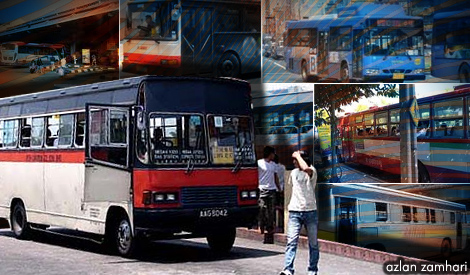I refer to Sarawak DAP leader Chong Chieng Jen’s proposal to demand that the Sarawak state government take over and operate the public bus system in the state to reduce cost of living and traffic congestion.
Takeover and problem solved. No offence but I think his proposal sounds like Bernie Sanders’ economics. Here’s what I think the issue should be thought for his reconsideration.
Let the bus companies (Syarikat City Public Link (CPL) Bus Service Sdn Bhd, Sarawak Transport Company Bhd, Petra Jaya Transport Company and Bau Transport Company) continue their services.
If they are making losses due to an increase of private cars on the road and traffic congestion, allow them to reconfigure, reroute and re-innovate their businesses.
This is precisely why market prices are crucial to allocate resources and indicate where capacity needs changes.
In a market economy, producers must adjust to the demands of consumers and not the other way around.
If producers wish to earn incomes in the market, they must change what they do in order to better satisfy consumers.
Just imagine if the state government takes over, it can operate bus services even at a loss and perhaps free of charge forever, which will benefit working class and lower income families.
As a result bus services become a protected business. So they are insulated from competitive market pressures at the expense of tens of millions of ringgit in subsidies, thus making it impossible for other private bus services to enter the market and offer their alternative services atlower fares.
If the state government increases the number of bus services when they are not valued by riders, then this is akin to a tailor who spends long hours making trousers that are ninety feet long for nothing.
Greater demand of private cars and road construction works explain why traffic congestion in Kuching is getting worse, not because of lack of public transportation.
It simply means more money is being allocated to construct better roads and low-cost funding to purchase cars, which are crowding out the ability of public bus companies to access market funding which can improve services and attract riders.
To add insult to injury, bus fares are regulated. If there is strong demand for a bus system in the state as Chong claimed, this necessarily will translate into higher prices, not regulated prices. And to sustain itself, profit-making should be allowed.
Despite tough conditions, I still believe bus companies are always on the search for improvement, either from lowering costs or from perfecting their services.
They have been in the business for decades. No company can stay that long in business if it fails to react to the wishes of consumers in the first place.
MEDECCI LINEIL is with the Institute for Leadership and Development Studies (LEAD), a new think-tank established to promote alternative policies and nationhood practice based on the market system.


